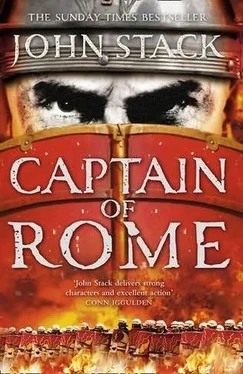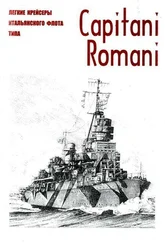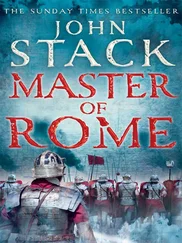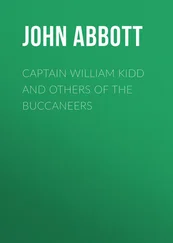John Stack - Captain of Rome
Здесь есть возможность читать онлайн «John Stack - Captain of Rome» — ознакомительный отрывок электронной книги совершенно бесплатно, а после прочтения отрывка купить полную версию. В некоторых случаях можно слушать аудио, скачать через торрент в формате fb2 и присутствует краткое содержание. Жанр: Исторические приключения, на английском языке. Описание произведения, (предисловие) а так же отзывы посетителей доступны на портале библиотеки ЛибКат.
- Название:Captain of Rome
- Автор:
- Жанр:
- Год:неизвестен
- ISBN:нет данных
- Рейтинг книги:3 / 5. Голосов: 1
-
Избранное:Добавить в избранное
- Отзывы:
-
Ваша оценка:
- 60
- 1
- 2
- 3
- 4
- 5
Captain of Rome: краткое содержание, описание и аннотация
Предлагаем к чтению аннотацию, описание, краткое содержание или предисловие (зависит от того, что написал сам автор книги «Captain of Rome»). Если вы не нашли необходимую информацию о книге — напишите в комментариях, мы постараемся отыскать её.
Captain of Rome — читать онлайн ознакомительный отрывок
Ниже представлен текст книги, разбитый по страницам. Система сохранения места последней прочитанной страницы, позволяет с удобством читать онлайн бесплатно книгу «Captain of Rome», без необходимости каждый раз заново искать на чём Вы остановились. Поставьте закладку, и сможете в любой момент перейти на страницу, на которой закончили чтение.
Интервал:
Закладка:
Gaius leaned into the tiller as he re-righted the Aquila’s course, bringing her back to a line parallel to the Carthaginian galley, not ten feet from the hull. Punic cries of alarm and rage filled the air as the cutwater of the Aquila struck the forward extended oars of the Carthaginian galley, the fifteen foot pine oars snapping against the relentless seventy-ton hull, the screams of the slaves manning the oars drowning out all sound save the crack of shattered wood. Many of the Carthaginians reacted instantly to the reversal of fortune, lifelong battle instincts dictating their response as they released flights of arrows across a flat trajectory to the Roman galley, their volleys made impotent by the wall of legionaries’ shields.
‘Re-engage oars!’ Atticus shouted as the Aquila cleared the hull of the Carthaginian galley.
The starboard oars were extended once more and the Aquila’s speed of eleven knots took her out of effective arrow range within seconds, the crew of the now disabled Punic ship left to scream curses across the widening gap. Atticus ignored the shouts and turned his full attention to the formation behind him, watching them as they bunched together to breach the gap the Aquila had created and they poured through the line.
A spontaneous cheer erupted from many of the young hastati on the deck of the Aquila as the galley breached the confines of the harbour and struck out into the open sea. It was a cheer that was not repeated by the experienced men of the galley, Atticus and Septimus amongst them as they stood together on the aft-deck. Atticus’s gaze was locked on a forlorn Roman galley, the Opis, still fighting in the midst of hell in the outer harbour. She had been cut off from the formation and the Carthaginians were turning on her like a pack of hyenas, unleashing their fury at the escape of so many of the Roman galleys by slaughtering the few who remained, the desperate cries of the Romans diminishing as the last of them fell under Phoenician swords. Septimus was looking beyond the naval battle to the docks and thought of the Ninth legion that had long been his home and family, a bond that had been reawakened over the past three months. Their breakout would be desperation itself, a knife edge existence between retreat and rout for the near three thousand men that remained and Septimus could not bring himself to believe that more than a third would see Brolium again.
‘Raise sail, withdraw oars!’ Atticus commanded, finally turning his back on Thermae. The order was repeated on the seventeen Roman galleys sailing in the Aquila’s wake, the remnants of a shattered fleet. The last of the adrenaline in Atticus’s blood began to dissipate and he suddenly felt cold and exhausted, weary to his soul. Three months before the Classis Romanus had swept the sea clear of the enemy, a great victory that made all believe, even Atticus, that the new Roman fleet had reversed and destroyed the three hundred year old superiority of the Punic fleet with one fell swoop. It was a belief born from the confidence of fools and Atticus felt the bile of shame rise in his throat at the thought of his stupidity. They had not destroyed the behemoth, they had merely wounded it, and now the beast had reared its head in vengeance, a brutal retaliation that ran the waters of Thermae red with Roman blood.
CHAPTER TWO
He couldn’t breathe; the fetid air was too thick, too laced with the smell of fear and human waste. His mind was filled with the sounds of despair, of men dying slowly in the pitch blackness. He tried to stand, to break out, but the ceiling closed in on him, pushing him down until he thought his back would break from the pressure. His skin began to crawl, the sensation assailing his extremities first, forcing him to draw his arms and legs until he was curled into a foetal position, the tiny filthy creatures finding every inch of his skin, feeling their way up his back and across his chest, their clicking sound smothering all other in his tormented mind. They reached his neck, and he stretched his head up with forlorn hope to escape them, their advance inexorable. The first of them touched his face, scuttling across his cheek and into his hair. It was followed by a dozen others, then a hundred, the clicking noise roaring in his ears; his face was alive with them.
Scipio shot up and screamed a cry of despair from the depths of his soul. His wife was instantly awake, her hand outstretched to touch her husband and release him from the bounds of his nightmare, the horrific dream that visited him every night without fail. He sat upright in the bed, swallowing huge breaths of air as if to cleanse his lungs, his eyes wide open, focusing intently on the soft light of the lantern that was now constantly lit during the hours of darkness.
‘Gnaeus…’ Fabiola began, her voice gentle, searching for the man lost in that terrible place he had described to her only once, a place that had forever stolen part of his courage.
Scipio shrugged off her hand, throwing his feet out over the edge of the bed, resting his elbows on his knees as he rubbed the last vestiges of the nightmare from his face.
‘Go back to sleep Fabiola,’ he said knowing he himself would not sleep again that night. He rose and walked naked across the room, brushing aside the silken drapes that led to the cool night air of the balcony. On the lower reverse slope of the Capitoline Hill of Rome, the view from the balcony took in the flood plains of the Tiber, now bathed in the soft half-glow of a crescent moon. It was a beautiful calming sight but Scipio took no pleasure from it, his anger and shame still raw from the nightly reminder of his downfall.
Scipio had no idea how long he had been held prisoner in the lower hold of the Carthaginian galley after his capture at Lipara; weeks, a month, eternity, time had lost all meaning in the blackness of that space but one thought had always remained with him during that sentence, one thought he had coiled around his heart-revenge; a vindicta against the men who had robbed him of his rightful fate. Scipio’s dark memories were interrupted and he started slightly as Fabiola’s naked body, still warm from the bed, pressed against his back, warming the skin that had cooled in the pre-dawn air. Her arms enfolded around him and he raised his hands and encased hers in his across his chest. He knew she never slept either after his nightmares and whereas most nights he preferred his own company at this time, on this night, the night before he would take his first step on his road to vengeance, he accepted her presence without hesitation. He turned around and looked into her face, her delicate features made more beautiful by the half-light. He gazed deeply into her eyes, seeing the intelligence there, but also the cold ruthlessness that she hid from all except her husband. A smile crept onto her face and he nodded slightly, his anticipation rising at the thought of the hours ahead and the plan made possible by his wife’s incredible instincts.
‘Soon…’ she whispered.
He nodded again. The word had become a mantra for him, a talisman for the time when the men who had crossed him would pay for their crime.
‘Soon…’ he replied, taking his wife by the hand and leading her back through the rippling folds of the silk curtains.
The cool blue-green water of Brolium harbour removed every thought from Atticus’s mind as he swam deeper beneath the hull of the Aquila, her recently caulked keel illuminated by the distorted light of the mid-morning sun refracting through the gentle swell of the waves above. The pressure in his lungs deepened as he hung suspended beneath the water, his brief exhalation of air to achieve neutral buoyancy prompting his body to protest at the rationing of its sustenance. Atticus ignored the slight burning sensation in his chest, his intimate knowledge of his body’s limits, tested many times, allowing him to clear his mind and take in the sweep of his galley’s hull. They had hit the Carthaginian ship hard and three of the strake timbers of the bow port quarter were deeply scored where the galleys had connected. With an experienced eye Atticus surveyed the damage, searching for telltale air bubbles that would foretell a weakness but the hull was sound. A reflexive reminder to breathe interrupted Atticus’s thoughts and he thumped the hull twice with his fist before striking out for the surface.
Читать дальшеИнтервал:
Закладка:
Похожие книги на «Captain of Rome»
Представляем Вашему вниманию похожие книги на «Captain of Rome» списком для выбора. Мы отобрали схожую по названию и смыслу литературу в надежде предоставить читателям больше вариантов отыскать новые, интересные, ещё непрочитанные произведения.
Обсуждение, отзывы о книге «Captain of Rome» и просто собственные мнения читателей. Оставьте ваши комментарии, напишите, что Вы думаете о произведении, его смысле или главных героях. Укажите что конкретно понравилось, а что нет, и почему Вы так считаете.











